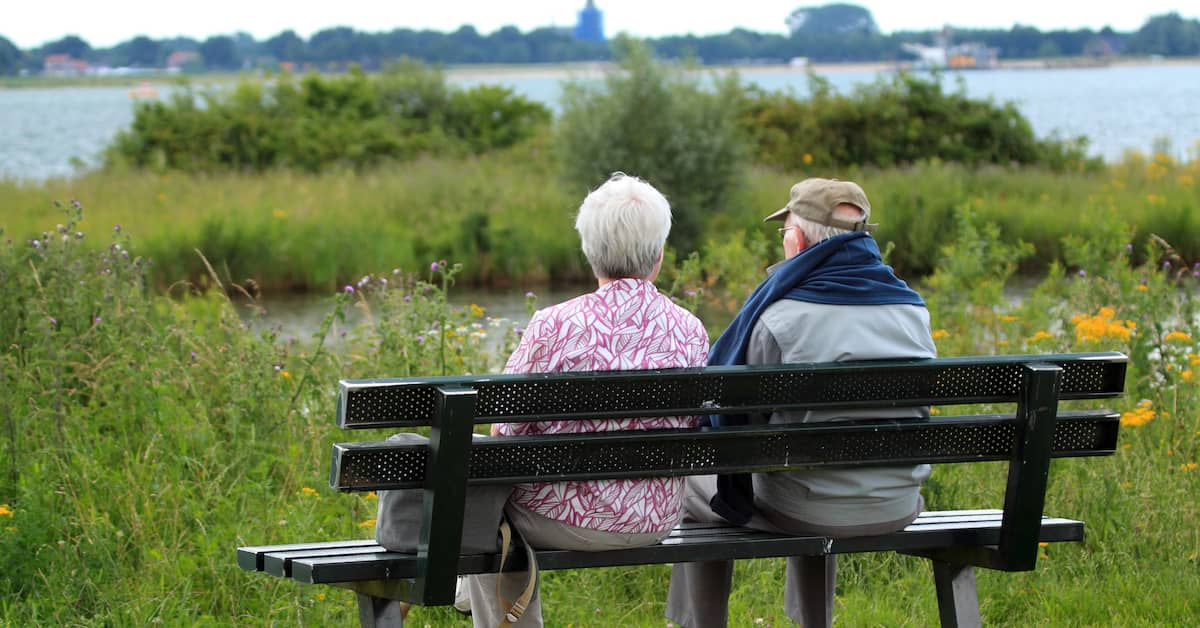
But he's the exception that proves the rule because as we non-billionaires get older, we become kinder, more caring, more generous and have greater life satisfaction, according to the latest research.
The physical and cognitive effects of aging have been extensively studied but aging also brings about changes in social behavior and emotional responses.
Seniors spend more time volunteering and donate a larger proportion of their income to good causes compared to younger adults. The reason can partly be explained by socioeconomic and life experience factors of course, but neurochemical responses also change with age and could play an important role.
The most likely biological candidate in this regard is the brain hormone, oxytocin.
Seniors Have Larger Increases in Oxytocin
Dubbed the "love hormone" because it's produced with sexual arousal, romantic attachment, and parent-infant bonding, oxytocin does however also influence trust, altruism, charity, and generosity.To examine the effect of age on the release of oxytocin, researchers led by Claremont Graduate University, California, recruited 103 men and women between the ages of 18 and 99. Each viewed a short heart-rending video of a father talking about how he is coping with the knowledge that his two-year-old son is terminally ill with brain cancer.
Blood levels of oxytocin are known to correlate with the amount secreted by the hypothalamus, so blood was drawn and measured both before and after watching the video. The researchers found those aged 65 and older had a bigger increase in oxytocin than younger participants. This increase in oxytocin with age could explain why, on average, people are more caring as they get older.
Researchers tested this theory by rewarding each person with a sum of money for their willingness to take part, while giving them the option of donating some of it anonymously to a childhood cancer charity.
Seniors Donate Three Times as Much
Those that donated the most were the ones who had the largest increases in oxytocin, with seniors being the biggest donors among the group shelling out three times as much as the 18 to 35 age group.The analysis also showed the amount by which oxytocin levels changed was positively associated with life satisfaction, empathy, gratitude, and religious commitment.
They also found that when there where similar donations given by young and old alike, oxytocin response was large in the younger group but smaller in the older group. The researchers also surveyed the group and found that older members spent more time volunteering and donated more to good causes in the previous twelve months than the younger participants.
Helping Others Enhances Life Satisfaction
First author Dr. Paul Zak explained, saying, “The findings of our study are consistent with many religions and philosophies, where satisfaction with one's life is enhanced by helping others.“Participants in our study who released the most oxytocin were more generous to charity when given the opportunity and performed many other helping behaviors. This is the first time a distinct change in oxytocin has been related to past prosocial [kindness and generosity] behaviors.”
If you find yourself feeling more akin to J. Paul Getty than Mother Teresa, the good news is that the effect is bidirectional. In other words, not only does prosocial behavior increase oxytocin levels but an increase in oxytocin leads to more prosocial behavior.
So, if you want to become kinder and more generous you can do so by making a conscious choice to be more charitable. In doing so, you’ll boost your “love hormone” and your generosity will continue to grow.
